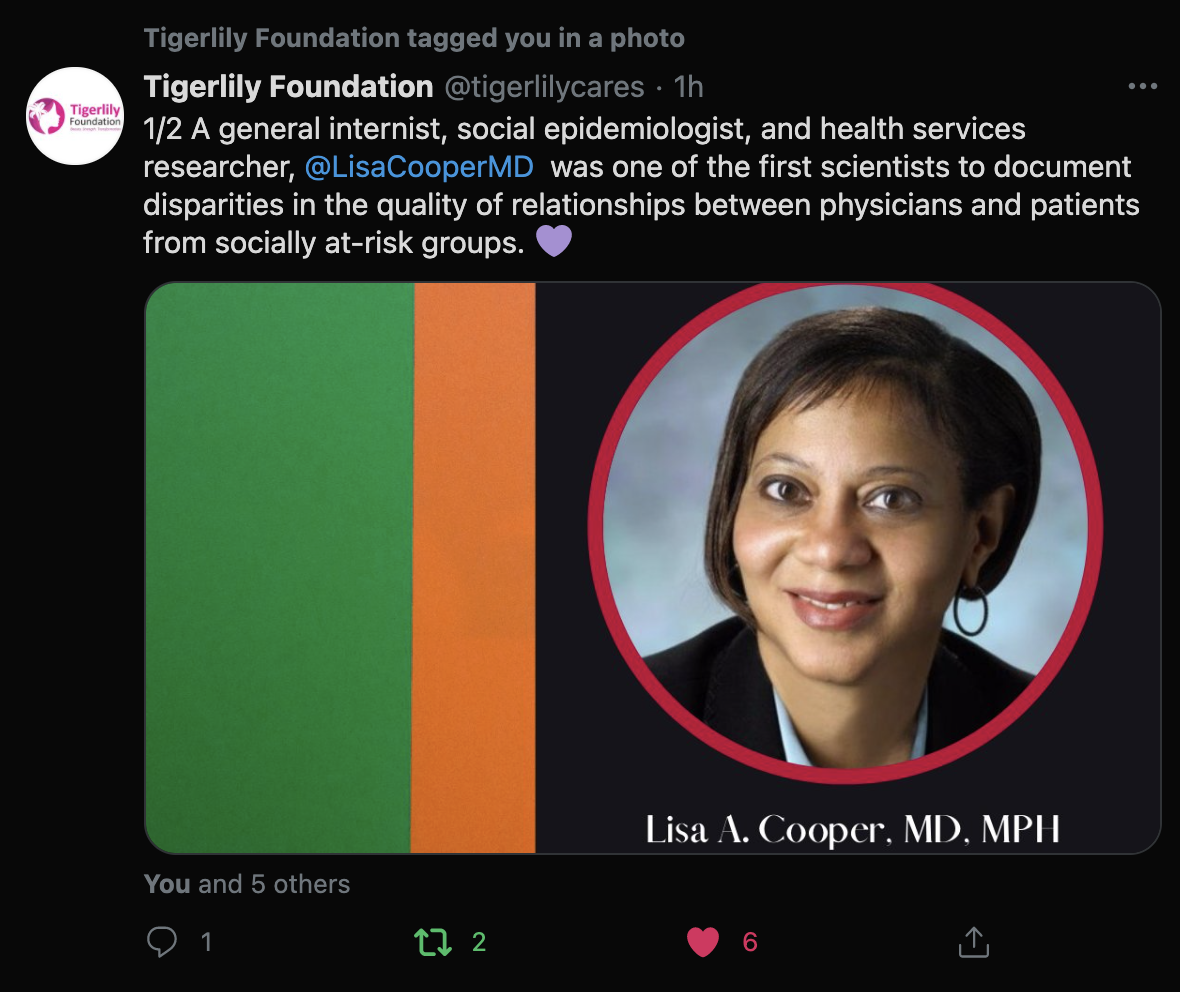Dr. Lisa Cooper’s Forthcoming Book
Tigerlily Foundation Tweets about the work of our Center Director Dr. Lisa Cooper.
Amazon link promoting pre-order of Dr. Cooper’s forthcoming book.
Health is determined by far more than a person's choices and behaviors. Social and political conditions, economic forces, physical environments, institutional policies, health care system features, social relationships, risk behaviors, and genetic predispositions all contribute to physical and mental well-being. In America and around the world, many of these factors are derived from a lingering history of unequal opportunities and unjust treatment for people of color and other vulnerable communities. But they aren't the only ones who suffer because of these disparities everyone is impacted by the factors that degrade health for the least advantaged among us.
In Why Are Health Disparities Everyone's Problem? Dr. Lisa Cooper shows how we can work together to eliminate the injustices that plague our health care system and society. The book follows Cooper's journey from her childhood in Liberia, West Africa, to her thirty-year career working first as a clinician and then as a health equity researcher at Johns Hopkins University. Drawing on her experiences, it explores how differences in communication and the quality of relationships affect health outcomes. Through her work as the founder and director of the Johns Hopkins Center for Health Equity, it details the actions and policies needed to reduce and eliminate the conditions that are harming us all.
Cooper reveals with compelling detail how health disparities are crippling our health care system and society, driving up health care costs, leading to adverse health outcomes and ultimately an enormous burden of human suffering. Why Are Health Disparities Everyone's Problem? demonstrates the ways in which everyone's health is interconnected, both within communities and across the globe. Cooper calls for a new kind of herd immunity, when a sufficiently high proportion of people, across race and social class, become immune to harmful social conditions through "vaccination" with solidarity among groups and opportunities created by institutional and societal practices and policies. By acknowledging and acting upon that interconnectedness, she believes everyone can help to create a healthier world.
ADDITIONAL RESOURCES
More on Dr. Cooper’s Accomplishments


